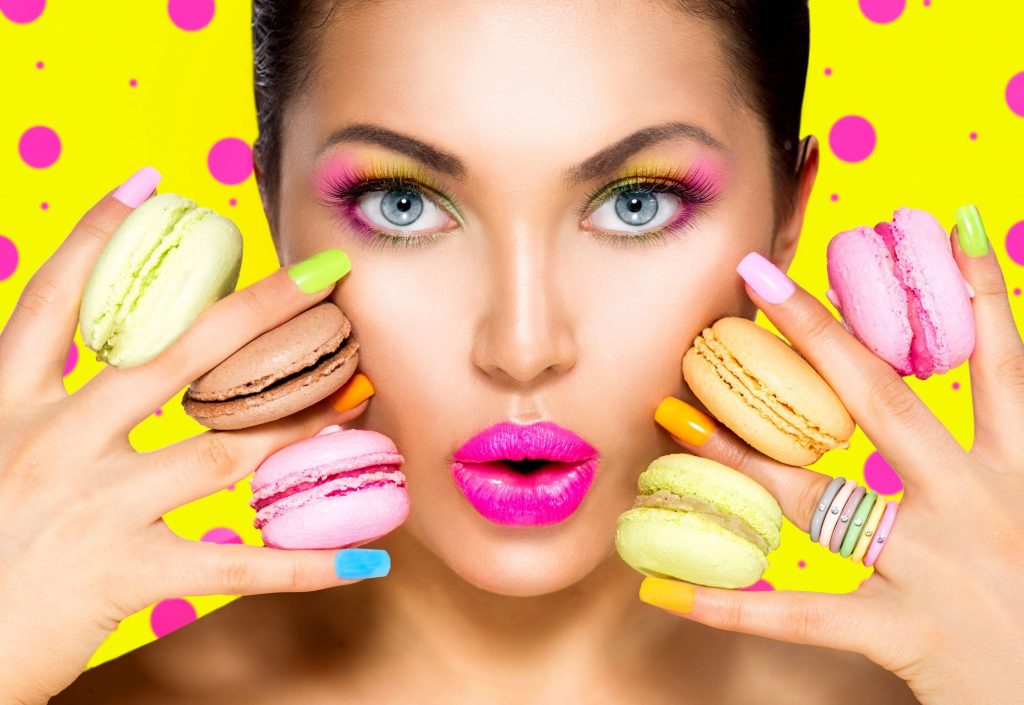Glossier, ColourPop, Kylie Cosmetics and Fenty Beauty are supermodels for the cohort of new wave 21st century beauty brands. Born in the digital age, they’re social media experts, skilled at connecting with the rising generation of beauty consumers who are looking for brands with purpose, that make a contribution to society.
Gen Z (born between 1997 and 2012) is on track to become the largest generation of consumers by 2020 and the most diverse in history. They – and their older relatives the Millennials – respond to brands who share their values and create a sense of community (what consultancy YPulse has called ‘the brandom’).
Meeting their needs for products that promote inclusivity and diversity is driving innovation in every category. In 2017, #fentybeauty memorably launched with 40-shades of foundation. Today, gender neutral brands such as Non Gender Specific sell skincare for ‘all skin types, all skin tones, all genders’. You can buy vegan products, halal-certified products and products that support the ethical and sustainable philosophy of ‘slow beauty’.
An important shift is that the beauty customer is no longer predominantly female; men’s personal care will be worth $166 billion by 2022. Male grooming now goes way further than shaving. Think skincare, haircare, fragrance and cosmetics – check out Fenty’s YouTube tutorials for men, and Chanel’s Chanel de Boy, launched in 2018. There’s even a range of skincare specifically for teenage boys. And of course, clean beauty and gender-neutral ranges are welcoming to all.
When it comes to beauty products, Gen Z prefers to purchase in the real life store (with friends, trying out new products and enjoying the whole experience). Their favourite stores are Ulta and Sephora but most of their buying journey actually takes place online. Fashion and beauty content are some of the most viewed content on YouTube: in 2018 beauty-related content generated more than 169 billion views on the video platform. Much of this is driven by influencers, who have huge power: with 24.3 million subscribers, Mexican blogger Yuya is currently the most subscribed beauty content creator on YouTube. Eight in ten female teens say influencers are their number one source for discovering new beauty products.
The downside of all this is way too much information. Facebook says that 43% of Gen Zers find it difficult to choose what to watch, listen to and read. At a time when store shopping may be restricted and they have to buy online, it’s a call for brands and retailers to provide good quality information and make the digital experience as easy and friendly as a consultation at the real life beauty counter. And social proof is a powerful way to do that.
Social proof acts like an influencer. Because it’s based on ‘people like them’, social proof messaging has the independence, the authenticity and validation young consumers seek from influencers and their friends. It also reflects that sense of brand community – maybe you can’t get to the store today but you can see that others are at the same virtual beauty counter: ‘53 people are looking at this right now’. Messaging that is carefully crafted to reflect the brand value and identity can reassure, ‘Great choice! 36 sold in the last 24 hours!’; encourage experimentation, ‘Our best seller: 48 people have this in their basket’ and inform, ‘only 23 left in stock today’. Younger beauty shoppers especially also like to understand what other customers like them have said about the product – customer reviews can be aggregated and messages displayed that share: 98 people rated this 5* for quality to give them further confidence in their product choices.
Millennials and Gen Z are happy to buy anywhere there is shoppable content, but they expect brands to deliver a seamless experience, from store to outdoor advertising to app to social media to retail website. Adding social proof messaging across channels helps to strengthen the overall brand experience and make life easier for customers.
With the holiday season approaching, lots of people will be buying more online than ever before and it’s important they are supported at every step. Introducing social proof is a low risk, quick-to-execute decision. It can have a positive effect on conversion rates and sales but most importantly, it will help customers at the virtual beauty store buy with confidence.
Register now for our webinar Bringing the Beauty Counter online: how to create a great digital experience, Thursday 8 October 2020 9am-10am EST to hear more about how digital innovation is helping to re-create the beauty counter experience online and encourage customers to try and buy with confidence.



